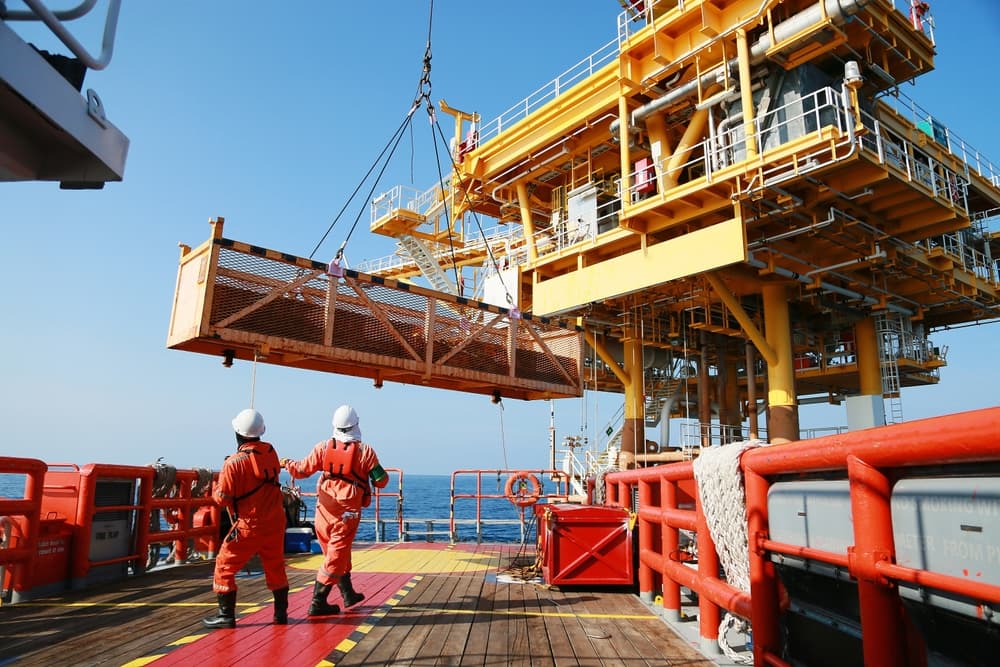Last Updated on December 3, 2024 by The Young Firm
The Jones Act is one of the most significant pieces of legislation in United States maritime law. This federal law plays a crucial role in protecting maritime workers, particularly those working along the Gulf Coast, a region that is a vital hub for the nation’s maritime industry.
The Jones Act not only regulates maritime commerce but also provides essential protections for seamen, ensuring their rights and safety in an industry known for its inherent dangers. The following is a look at the significance of the Jones Act in protecting Gulf Coast maritime workers, the historical context of the Act, the specific protections it affords, and how a Jones Act lawyer can help maximize your compensation if you suffer an injury while on the job.
Historical Context of the Jones Act

Congress enacted the Jones Act in 1920 as a response to the growing concerns over the safety and rights of American seamen. The early 20th century was a period of rapid industrialization, and the maritime industry was no exception. However, with this growth came a significant increase in maritime accidents and injuries. At the time, seamen had limited legal recourse if they suffered job-related injuries, and they often faced harsh working conditions with little protection.
Legislators designed the Merchant Marine Act of 1920, which includes the Jones Act, to address these issues by providing greater protections for seamen. The Act was also part of a broader effort to strengthen the US maritime industry by ensuring that a capable and well-protected workforce staffed it. The Jones Act’s provisions aimed to create a safer working environment for seamen and ensure they had the legal means to seek compensation if they suffered an injury due to negligence.
Core Provisions of the Jones Act
The Jones Act contains several key provisions that are essential for the protection of maritime workers. These include the requirement for US citizens to own, operate, and construct vessels operating in US waters and the ability for seamen to bring claims against their employers for injuries sustained due to negligence. The Act also includes provisions related to the maintenance and cure of injured seamen, ensuring they receive necessary medical care and financial support.
Negligence Claims
One of the most significant aspects of the Jones Act is the right it grants seamen to bring claims against their employers for injuries sustained due to negligence. Unlike workers in other industries, standard workers’ compensation laws don’t cover maritime workers. Instead, the Jones Act provides them with a unique legal framework to seek compensation for injuries.
Under the Jones Act, a seaman can file a lawsuit against their employer if their Jones Act lawyer can prove their injury occurred due to the employer’s negligence. Examples include unsafe working conditions, lack of proper training, insufficient safety equipment, or any other factor that contributed to the injury. The burden of proof in these cases is relatively low, meaning that even a small amount of employer negligence can result in a successful claim.
Maintenance and Cure
The Jones Act also includes provisions for “maintenance and cure,” which are fundamental rights of injured seamen. Maintenance refers to the daily living expenses a seaman is entitled to while recovering from an injury, such as food and housing. Cure refers to the medical expenses related to the treatment of the injury. Under the Jones Act, employers must provide maintenance and cure until the seaman has reached maximum medical improvement, regardless of who was at fault for the injury.
Protection Against Retaliation
Another important provision of the Jones Act is its protection against retaliation. Maritime workers who file a claim under the Jones Act are protected from being fired or retaliated against by their employers. This protection is critical, ensuring seamen can exercise their rights without fear of losing their jobs or facing other negative consequences.
The Jones Act and Gulf Coast Maritime Workers
The Gulf Coast region is home to a significant portion of the US maritime industry, including commercial shipping, offshore drilling, fishing, and more. The Jones Act plays a particularly vital role in protecting the workers in this region, where the unique environmental and industrial conditions often heighten the risks associated with maritime work.
Offshore Drilling and the Jones Act

Offshore drilling is one of the most dangerous sectors of the Gulf Coast’s maritime industry. Workers on offshore platforms face numerous hazards, including the risk of explosions, equipment malfunctions, and exposure to harsh weather conditions. The Jones Act is necessary for these workers, providing them with the legal protections needed to ensure their safety and well-being.
In the event of an injury, offshore workers can use the Jones Act to file a claim against their employer for negligence. This ability to take legal action is particularly important in the offshore drilling industry, where accidents can often be traced back to inadequate safety measures, insufficient training, or defective equipment. Seeking compensation under the Jones Act provides financial support for injured workers and deters against unsafe practices within the industry.
Commercial Fishing and the Jones Act:
The Gulf Coast is also a major center for commercial fishing, another industry where the Jones Act is critical in protecting workers. Commercial fishermen face numerous dangers on the job, including the risk of drowning, injuries from heavy equipment, and exposure to extreme weather conditions. The Jones Act ensures that these workers have the legal protections they need to seek compensation if they suffer an injury due to negligence.
For example, suppose a fisherman suffers an injury because their employer failed to maintain the vessel’s equipment properly. In that case, they can file a claim under the Jones Act to seek compensation for their injuries. The maintenance and cure provisions of the Act also ensure that injured fishermen receive the necessary medical care and financial support during their recovery.
Hurricane Response and the Jones Act
The Jones Act protects maritime workers involved in hurricane response and recovery efforts. These workers often face heightened risks as they work to repair damaged vessels, restore shipping routes, and assist in other recovery operations.
In the aftermath of a hurricane, maritime workers hurt during response efforts can rely on the Jones Act to seek compensation for their injuries. This is significant in a region like the Gulf Coast, where the frequency and intensity of hurricanes can create dangerous working conditions for maritime workers.
How a Jones Act Lawyer Can Help an Injured Maritime Worker Obtain Fair Compensation

Maritime work is inherently dangerous, with workers frequently exposed to hazardous conditions, unpredictable weather, and the risks associated with operating heavy machinery. When a maritime worker suffers an injury, obtaining fair compensation can be a complex and challenging process, often requiring legal knowledge and experience in maritime law.
The Jones Act is a critical tool in securing the rights and compensation of injured maritime workers. However, navigating the complexities of a Jones Act claim can be daunting without the assistance of an experienced maritime injury attorney.
Given the unique and complex nature of the Jones Act, maritime workers who suffered an injury on the job often face an uphill battle in proving their claims and obtaining fair compensation. This is where a Jones Act lawyer can make a significant difference. Here are a few of the ways.
Experience in Maritime Law
One primary way a Jones Act lawyer can assist an injured maritime worker is through their deep understanding of maritime law. The Jones Act is a specific area of law requiring an attorney skilled in maritime cases. A general personal injury lawyer may not have the experience needed to handle the intricacies of the Jones Act. If they can’t, the injured worker can receive less compensation than they deserve
A Jones Act lawyer is well-versed in the various legal standards and precedents that apply to maritime injury cases. They understand how to interpret the law to maximize the chances of a successful claim. This understanding is vital in building a strong case that clearly demonstrates the employer’s negligence and the extent of the worker’s injuries.
Conducting a Thorough Investigation
Gathering substantial evidence supporting the worker’s claim of negligence is essential to securing fair compensation under the Jones Act. A Jones Act attorney has the resources and experience to conduct a thorough investigation into the circumstances surrounding the injury. This investigation includes collecting evidence such as accident reports, maintenance records, witness statements, and expert testimony.
In many cases, the success of a Jones Act claim hinges on the ability to prove that the employer failed to provide a safe working environment. A skilled maritime injury lawyer knows what evidence to look for and how to present it effectively. They can identify unsafe practices, equipment failures, or lapses in safety protocols that may have contributed to the injury.
Negotiating with Insurance Companies
Maritime employers and their insurance companies often attempt to minimize the compensation injured workers receive. They may offer settlements far below what the worker is entitled to or try to deny the claim altogether. Dealing with insurance companies can be overwhelming, especially for someone recovering from a serious injury.
A Jones Act lawyer plays a critical role in negotiating with insurance companies on behalf of the injured worker. They have the experience to recognize an unfair offer and the negotiation skills to push for a better settlement. A lawyer understands insurance companies’ tactics to reduce payouts and can counter these strategies effectively.
By advocating for the worker’s rights, a Jones Act attorney helps ensure that the compensation offered is fair and reflects the true extent of the injury and its impact on the worker’s life.
Representing the Worker in Court
A Jones Act lawyer is prepared to take the case to court if a fair settlement isn’t possible through negotiation. Litigation can be complex and intimidating. However, a skilled attorney will guide the injured worker through each step. They’ll present the case to the judge or jury, using the evidence gathered during the investigation to demonstrate the employer’s negligence and the resulting harm.
In court, a Jones Act lawyer will argue for compensation that covers not only medical expenses and lost income but also pain and suffering, future medical care, and any other damages related to the injury. They aim to secure a judgment that fully compensates the worker for all the losses they’ve incurred due to the injury.
Ensuring Full and Fair Compensation

Obtaining fair compensation under the Jones Act involves more than just covering immediate medical bills. A Jones Act lawyer will work to ensure that the injured maritime worker receives compensation for all aspects of their injury. This compensation includes:
- Medical expenses: Both current and future medical costs related to the injury, including surgeries, rehabilitation, and ongoing treatment.
- Lost earnings: Compensation for the income lost during the recovery period and any reduction in earning capacity if the injury affects the maritime worker’s ability to return to their previous job.
- Pain and suffering: Damages for the maritime worker’s pain and emotional and mental distress due to the injury.
- Maintenance and cure: A Jones Act lawyer will also ensure the worker receives maintenance and cure. Again, these are payments for living expenses and medical care until the worker reaches maximum medical improvement.
By thoroughly evaluating the full impact of the injury, a Jones Act lawyer helps ensure that the compensation awarded reflects the true extent of the worker’s losses.
Learn More About How a Jones Act Lawyer Can Help
Injuries sustained in the maritime industry can have devastating consequences for workers and their families. The Jones Act provides a vital avenue for injured maritime workers to seek compensation, but filing a claim and securing fair compensation is complex and challenging.
A Jones Act attorney is an invaluable ally in this process, offering the experience, resources, and advocacy needed to handle all legal system challenges and obtain the compensation that injured workers deserve.
For anyone injured in the maritime industry, consulting with a Jones Act lawyer is critical in protecting their rights and securing their financial future. Please contact one for a free consultation.
